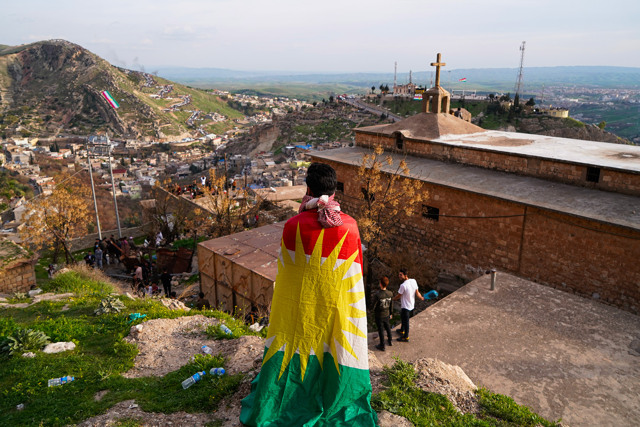The countdown to the early elections of October 10, 2021 has begun to shake the political arena in Iraq and new violence is expected. Ethnic-denominational coalitions have largely disengaged from their traditional blocs and have initiated movements and meetings to consolidate new alliances.
The main Kurdish coalition – formed by the Kurdistan Democratic Party (PDK) and the Patriotic Union of Kurdistan (UPK) – controls the executive and parliament in the Kurdistan regional government, and has traditionally played a significant role in shaping the central government. in Baghdad.
But for the next elections the two parties have taken different directions. The PDK has formed a new alliance with the movement of the Shiite leader Moqtada al Sadr. Together they plan to win the over one hundred seats needed to form the new government. The PDK wants to make sure that the next Iraqi president comes from within. At the same time, high-ranking UPK delegates visited Baghdad to form an alliance with Al Fateh, the party led by Hadi al Amiri, close to Iran. The Upk wants to make sure current President Barham Saleh stays in office.
Three blocks
The rift between the Kurds is encouraging Sunnis to work to bring back one of their presidential candidates to the country. The absence of Iyad Allawi, strongly supported since 2005, was the main novelty in the fragmentary electoral map of the Sunni alliance from which three blocs emerged, three lists led by entrepreneurs, one of which is the president of the parliament in office. Mohammad al Halbousi.
From the elections of 2005 to those of 2014, the three main Shiite forces of the time (the Supreme Islamic Council, the Dawa party and the Sadrist movement), together with other smaller formations, were brought together in a coalition, the United Iraqi Alliance. , which in January 2006 won 128 seats out of a total of 275. But as already happened in the 2018 elections, this year too there is a lack of a broad understanding between the Shiite parties.
Two Iranian envoys also arrived at the beginning of June: the commander of the Quds Forces, Esmail Qaani, and the spokesman for the foreign ministry, Said Khatibzadeh, with the mission of consolidating the Shiite electoral coalition.
There are three elements that, as in the past, will influence the vote: power, money and weapons. All three are in the hands of the major sectarian parties, and it is to be expected that violence will play an even greater role. Since the protests began in October 2019, more than 70 activists have been killed or attacked, while dozens more have been kidnapped. As a result, opportunities for independent candidates are dwindling, especially those who have emerged from the protests. Without a climate of security, many of them choose to support the vote boycott campaign.
(Translation by Francesco De Lellis)
.
